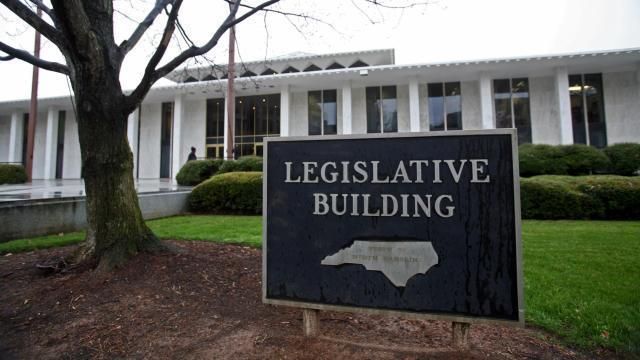With broad, bipartisan, support, Medicaid expansion clears another hurdle in NC
Medicaid expansion took another major step forward Wednesday, leaving it one vote, one signature and, perhaps most importantly one entire state budget away from reality in North Carolina.
Wednesday’s procedural vote on the deal passed 94-22, a massive show of bipartisan support after years when the General Assembly’s Republican majority opposed this long-time Democratic priority.
The state Senate voted the same bill through last week, 43-2.
There was no debate Wednesday in the House. Two members, a Republican bill sponsor and a Democratic supporter, gave brief speeches, and the process took roughly 10 minutes, belying the billions in federal funding expansion would draw down for the state’s health care industry.
Hundreds of thousands of people, most of them working adults, would become eligible for taxpayer funded health insurance under this deal, contained in House Bill 76.
The House will vote again on this bill Thursday, a result of legislative rules requiring votes over two days. Gov. Roy Cooper is expected to quickly sign the measure into law, and his Department of Health and Humans Services will negotiate implementation details with the federal government over the next few months.
One major hurdle remains: Republican leaders dropped a caveat into the carefully negotiated measure, saying expansion can’t be implemented until a new state budget gets approved. That frees GOP lawmakers to load that budget with policies Cooper and his fellow Democrats will have to stomach to achieve the Medicaid expansion they’ve sought for more than a decade.
Thirty-nine other states expanded the program before North Carolina Republicans backed the plan, enticed by the billions of dollars in federal funding that expansion unlocks. That includes an extra $1.8 billion enticement Congress included in pandemic-era legislation to tempt the remaining states.
That’s money the state can use a number of ways and Cooper, along with several Republican leaders, wants to use much of this money to bolster mental health care offerings in the state.
Expansion targets the working poor: People who make too much money to qualify for Medicaid now under North Carolina’s strict rules but not enough to afford insurance. It will cover adults up to 138% of the federal poverty level.
That coverage gap is thought to include hundreds of thousands of people who pay grocery and power bills instead of paying for a checkup and may end up seeking more expensive care in hospital emergency rooms. Their children may be covered by an existing Medicaid program, but they live without health insurance.
State Rep. Donnie Lambeth, one of a few Republicans who supported expansion for years, put the impact at $6 billion a year from expansion alone. But the bill will also unlock Healthcare Access and Stabilization Program (HASP) payments from the federal government, which are expected to pump billions more into the state’s hospitals, shoring up their finances.
All of this was paired with major rollbacks in hospital regulations that currently limit competition in the healthcare sector – rules major hospital systems protected for years but negotiated away as part of this deal. Changes in these certificate-of-need laws, phased in over the next three years, would make it easier to build new surgery centers, buy new imaging machines and expand other services without wading through a lengthy state approval process.
The idea is to boost the overall supply of healthcare options in the state as the number of people with health insurance, and thus the population likely to seek care, increases through expansion.
As for the state budget that is part and parcel of this Medicaid deal, that process is moving along in the House. Lambeth, R-Forsyth, said to expect the House’s version of that spending plan to be released next Wednesday.












